- Home
- About us
- Activities
-
About us
- News & Update
- Library
- Countries
- extra
- contact
extra
Click Show/hide
- Extras 2017
- Extras 2016
- Extras in October
- Earthquake - Updates from Friends in Nepal
- ACHR Extras April - September
- Extras for 2015
- December Photos PLUS
- November Photos Plus
- Photos October 2014
- Photos for August September
- Photos for July 2014
- Photos for May 2014
- Photos for March 2014
- Fr Norberto 1951 - 2014
- In-House Inspiration
- About the new website ...
ACHR Extras April - September
SAD NEWS ON THE PASSING OF RASHID KHATRI
It is with much sadness that we inform you that Rashid Khatri passed away on September in Battambang Cambodia on the evening of the 15th September 2015. He was only 51 years old and died of heart related complications …
From Somsook Sec Gen of ACHR
Dear all,
This is really very sad news to learn that Khatri had passed away so unexpectedly. A person who always find the ways to help poor people and to find solutions, justice and peace for those unprivileged and poor by his technical expertise. He came far away from Pakistan to work with Cambodia poor communities for so many years of his life. Now he will rest in eternal peace.
Our condolence to his family, all his friends and people whom he worked for.
Somsook from ACHR in Bangkok
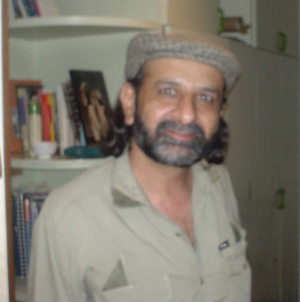 "Khatribhai's sudden and unexpected departure is a sad loss to the voice of
"Khatribhai's sudden and unexpected departure is a sad loss to the voice of
reason and justice.
Condolence to the family and all his friends and admirers."
Kirtee Shah
"Khatri will be missed, he was one of the people I always tried to contact when in Phnom Penh… I will remember a few very pleasant meals and many interesting chats with him.
Our condolences to his team and to you all."
Giorgio (and DPU team, UK)
"In Jakarta, let us gather our spirits in memory of Khatri, who will be greatly missed....."
Mariko UN-HAbitat Japan
"It is so sad of the passing away of Mr. Abdul Rashid Khatri, during his mission on 16 September 2015 at UCRC office in Battambang town, Battambang province. He died of heart attack.
Mr. Khatri was not just a person working with CMDP, since early 2000s, he was actively contributing technical and social support to urban poor settlements, local and national government, local and international organizations and donor communities.
We strongly hope you will join and share your condolence with his family."
Ieng Hoa, Director Community Managed Development Partners Cambodia
Arif backgrounds the courful character of Khatri in his youth
Khattri came from a middle-class small business family. He graduated from the NE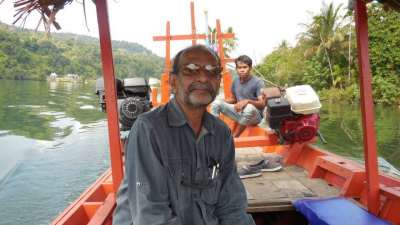 D University in 1981. As a student he became active in left-wing politics and later on became an active member of the pro-China Maoist group in the University. This was very odd for someone of his background. It was because of these strong ideological leanings that he started to wear a white pajama and kurta and always wore a Mao cap. From what I gather from his close associates, is that he also carried a pistol with him hidden under his shirt while at the University and believed in armed revolution. I got to know him as a person when he worked with me on developing pilot projects for water and sanitation in the rural areas of Sindh. It was a long association and at that time Khattri was learning the ropes. The transition from a ideologue to a community organiser of the OPP variety was not easy and for a long time the longing for an armed revolution remained. The immense dedication to the cause of the people certainly stemmed from his political believes but the ethical framework he adopted came from the reality of the katchi abadis of Karachi. We were sad to loose him to Cambodia. It was a loss for us but we were happy that he continued to work in another Asian country for the welfare of its poorer citizens. Whenever he was in Karachi, he visited me and we discussed his ideas and mine and the conditions of Asia in general and Pakistan and Cambodia in particular. We will miss Khattri in Pakistan and wish him well in his next life. From Arif Hasan
D University in 1981. As a student he became active in left-wing politics and later on became an active member of the pro-China Maoist group in the University. This was very odd for someone of his background. It was because of these strong ideological leanings that he started to wear a white pajama and kurta and always wore a Mao cap. From what I gather from his close associates, is that he also carried a pistol with him hidden under his shirt while at the University and believed in armed revolution. I got to know him as a person when he worked with me on developing pilot projects for water and sanitation in the rural areas of Sindh. It was a long association and at that time Khattri was learning the ropes. The transition from a ideologue to a community organiser of the OPP variety was not easy and for a long time the longing for an armed revolution remained. The immense dedication to the cause of the people certainly stemmed from his political believes but the ethical framework he adopted came from the reality of the katchi abadis of Karachi. We were sad to loose him to Cambodia. It was a loss for us but we were happy that he continued to work in another Asian country for the welfare of its poorer citizens. Whenever he was in Karachi, he visited me and we discussed his ideas and mine and the conditions of Asia in general and Pakistan and Cambodia in particular. We will miss Khattri in Pakistan and wish him well in his next life. From Arif Hasan
And from Younus at the Urban Resource Center in Karachi, Pakistan
Profile of Abdul Rashid Khatri
Abdul Rashid Khatri 1962 – 2015
Abdul Rashid Khatri was born on13th January 1962. His parents migrated from Kutch (India) to Karachi in 1948. He was a graduate in civil engineering from the well-known NED University in Karachi. He got his degree in 1987. He studied law as he felt that legal knowledge was an essential tool for fighting exploitation and inequity.
During his days at NED University, Rashid Khatri became a member of the National Students Federation, a left wing organization which has been involved in fighting martial law and dictatorship in Pakistan. He became the unit secretary of the Federation at the University, and then general secretary of the entire Karachi division. During this period he was arrested and imprisoned in 1984 and 1986, for fighting the martial law ban on student unions and later, trade unions. He also became a member of the Peoples Democratic Front, a national political organization struggling to stabilize democracy in Pakistan.
After graduation, Khatri worked in a construction firm but was dissatisfied as it represented all the “exploitation and inequities” that he had struggled against. He searched for options, and in 1988 he joined an NGO, the Busti Development Project as a technical advisor. Here he was able to work with communities and established a close relationship with them. Conflicts within the Busti project let to Khatri’s resignation, and after the project wound up, the communities asked Khatri to help them out. This led to the creation of the (Mauripur Development Programme (MDP) in 1989. The MDP was as association of 7 local organizations. He was appointed project incharge of the MDP and started searching for support for the project.
In 1990, he made several visits to the Orangi Pilot Project – Research and Training Institute (OPP-RTI) and was instrumental in getting the OPP-RTI to agree to support MDP initiated low cost sanitation progamme in Mauripur.
He joined OPP-RTi as an engineer in sanitation and housing programme in 1991. He become joint director of OPP-RTI. Besides his involvement in sanitation and hosing programme, he conducted research and docunentation in appropriate technologies for rural development programme of the OPP-RTI and also become editor of OPP-RTI;s newsletter. In 1999 he got admission in master programme of the Asian Institute of Technology (AIT) Bangkok. He completed his post graduation studies from AIT in 2000.
Khatri was a hard working person and he loved to work with poor communities. Living among poor was his passion, he spent weeks and months in the field to develop his understanding about context of the problems. He mostly used public transport buses and trains to travel from one city to another city for his research work. He was a man whose spirit still exists in today’s NGO world. (By Muhammad Younus)
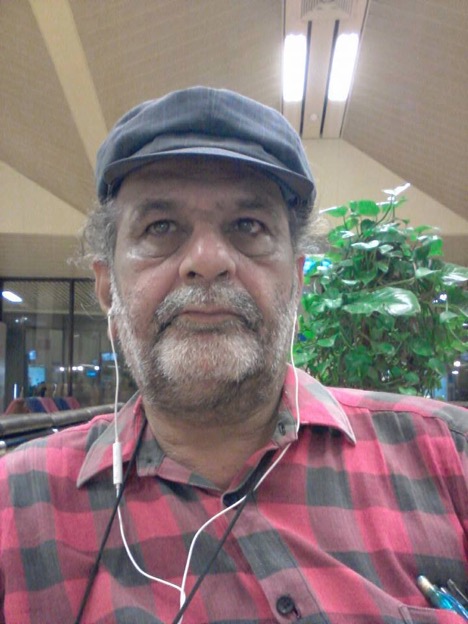 We will have more of Khatri's more recent work and achievements in Cambodia soon .....
We will have more of Khatri's more recent work and achievements in Cambodia soon .....
RIP friend of ACHR, Pakistan, Cambodia and the urban poor of Asia.
Khatri.
You big beautiful wild man: the young sage from Karachi’s Organi Pilot Project. I watched how you observed the maelstrom that was Phnom Penh; as the city burned, as power became corrupted, customary became privatised and the traditional was savaged. You quietly and pointedly disseminated your wisdom and you created a phalanx of empowered communities, unified so they could understand power and how to address it.
You taught me civil engineering, architecture, community planning and how to rebuild slums from the bottom-up. Yet, what you really taught me was to “unlearn” and “listen to the people”. You imbued me (and surely others..Chawanad Maurice) with your passion, your political convictions and a belief ‘in the people’ which I’ve forever guarded and taken forward with me. My mentor, my friend, I’m gonna miss those beaming wild eyes, your wry grin and our reckless laughs. Love you man.
David Crosbie, UK
Anne Mithleux, Australia
Well put David. Khatri was a fabulous mentor and friend. Gutted that Ill never get to enjoy his presence again.
Update on Evictions in Jakarta September 2015
From Ariel Shepherd in Jakarta
“We are not orang liar / wild people”
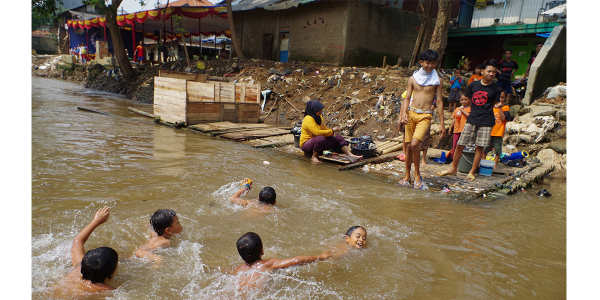
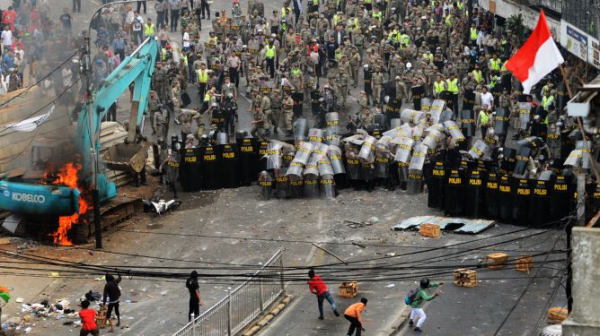
People had been promised compensation earlier in the year, but when the evictions arrived no one received anything, being told they were 'liar' which means wild. Many of the residents in kampong pulo are indigenous to Jakarta, known as Betawi people, the others have been living there for over three generations. When told they have no right to compensation because they are 'wild people', they protested because in fact they own various forms of land titlement, including 'Verbonding' a dutch land certificate passed down from 1930, but haven't succeeded in a registering them because although the process is supposed to be free, in reality it's very expensive and time consuming. Residents of Kampong Pulo, supported by Ciliwung Merdeka are currently in the process of creating a court-case on their land title.
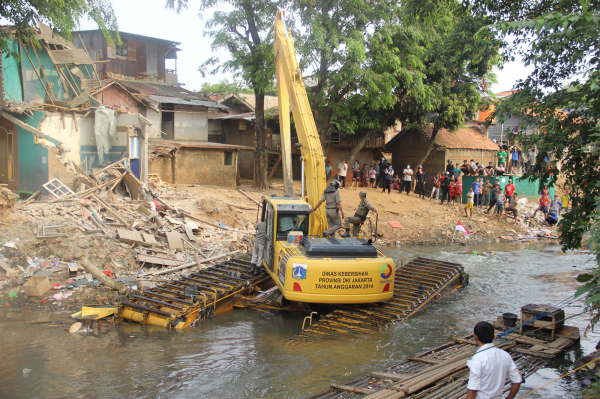
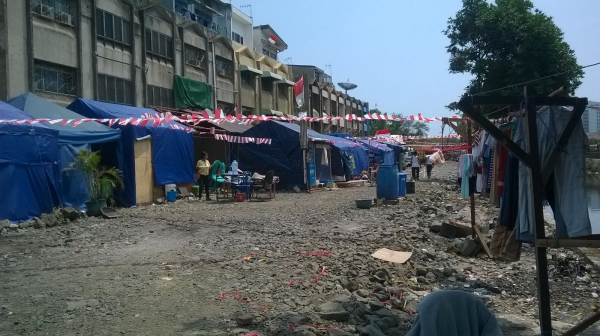
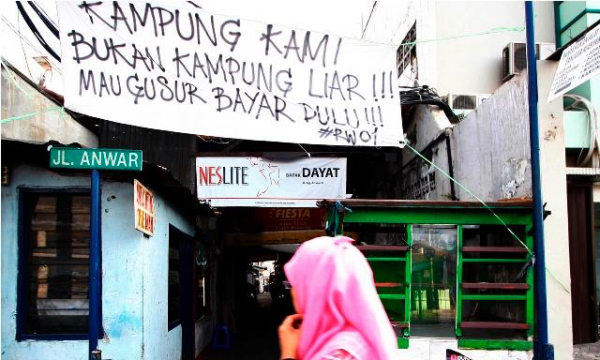
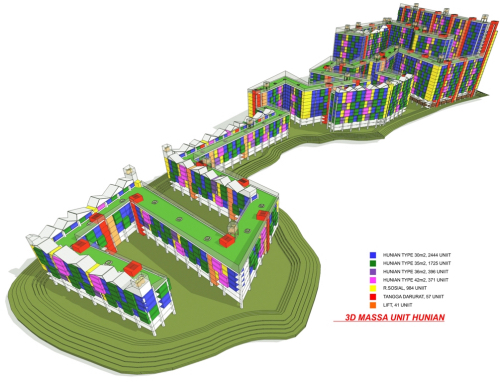
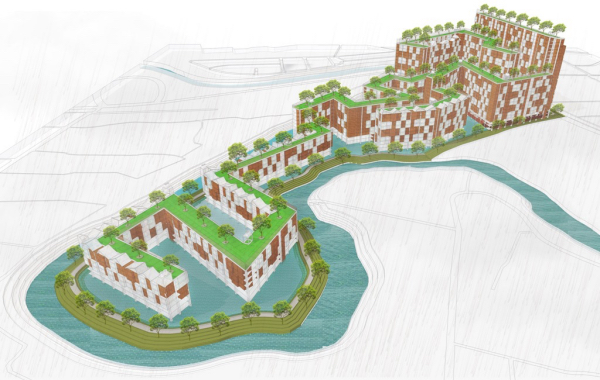
More updates soon ....
From Jakarta to Bangkok, under the name of urban development and environment clean up, the poor communities living along the canals and riversides have being forced to move away. Evictions are not new and become common practices in many Asian cities during many decades.
What makes different now in Bangkok is that the network of poor communities become stronger and they are organizing themselves to make them visible and to negotiate with the government. It is not easy process and will take long ways to go.
The great khlong clean-up
A plan to widen Bangkok’s canals has been made a national priority, but tens of thousands of people living in low-income communities will be left looking for new homes.
 Read more in the BANGKOK POST article Sept 2015
Read more in the BANGKOK POST article Sept 2015
Read More: Bann Mankong at KLONG BAN BUA Community Guidebook
- Bangkok's most comprehensive klong-side upgrading process can be downloaded from ACHR's Publications Library HERE.
( click the download in the Library ... it may take a few minutes )
ACHR Continuing Activities
 The program on Asia’s Decedent Poor has been expanded to include not only an emphasis on the poorest of the poor in Asia, but also to incorporate some of the character of our ACCA citywide upgrading activities. ……. A collaboration between SELAVIP and ACHR
The program on Asia’s Decedent Poor has been expanded to include not only an emphasis on the poorest of the poor in Asia, but also to incorporate some of the character of our ACCA citywide upgrading activities. ……. A collaboration between SELAVIP and ACHR
Go here for further information.

The Urban Poor Coalition Asia -UPCA-
giving opportunity and a platform for Asia’s grassroots leaders and communities to advocate and implement their own program of urban poor development continues.
Regional Fund Actiivities
Community Development Funds study. Poverty Line study expanded.
Study visits for 6 countries to the Women’ Cooperative in Sri Lanka. Sharing regional experiences in Myanmar.
 The Community Architects Network - CAN -
The Community Architects Network - CAN -
has already implemented some of its 2015 activities.
Heritage Workshop in Nepal Brief here
Collaboration with DPU students ad CAN-CAM Cambodia in May.
Later in the Philippines CAN”s annual Regional Workshops - 2 weeks of sharing and learning against the backdrop of real community development activities in 4 communities in Manila.
International Workshop 2015 On: “CITYWIDE UPGRADING TRANSFORMATION IN CAMBODIA” 1 - 15 May 2015
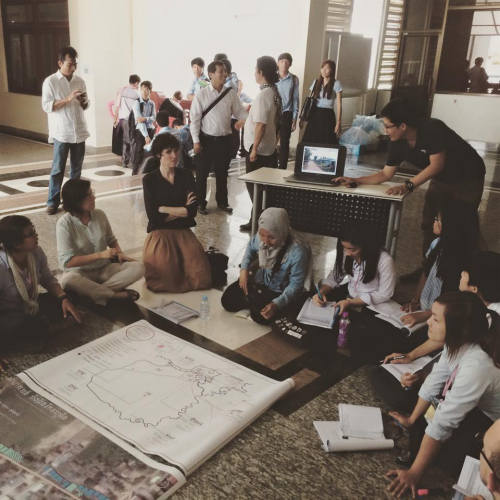
24 International students from DPU UK join Cambodian, Lao and Thai CAN members for this international workshop.
Photo: Final discussions before heading out to communities for 5 days of participatory planning and discussions.
You can DOWNLOAD a 2 page PDF explaining the worksshop, collaborations and expected outcomes.
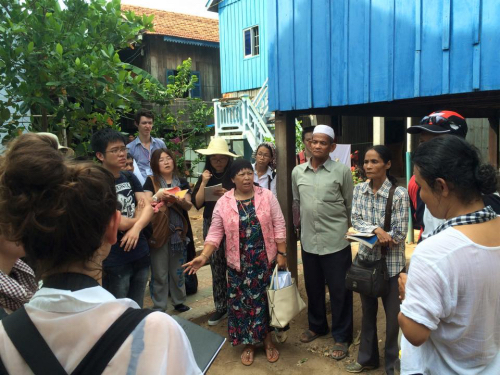 Yesterday we visited to learn from the poor communities: how they build and improve their communities and how they build the city. Without them the city will not function and live; please keep learning and support the peoples’ movement to improve their own communities. This is how we can have a better city: ) NAD ….CAN
Yesterday we visited to learn from the poor communities: how they build and improve their communities and how they build the city. Without them the city will not function and live; please keep learning and support the peoples’ movement to improve their own communities. This is how we can have a better city: ) NAD ….CAN
Phnom Penh, Cambodia
CAN's 3rd Newsletter has recently been completed for DOWNLOAD

It is with much sadness that we inform you that Rashid Khatri passed away on September in Battambang Cambodia on the evening of the 15th September 2015. He was only 51 years old and died of heart related complications …
From Somsook Sec Gen of ACHR
Dear all,
This is really very sad news to learn that Khatri had passed away so unexpectedly. A person who always find the ways to help poor people and to find solutions, justice and peace for those unprivileged and poor by his technical expertise. He came far away from Pakistan to work with Cambodia poor communities for so many years of his life. Now he will rest in eternal peace.
Our condolence to his family, all his friends and people whom he worked for.
Somsook from ACHR in Bangkok
 "Khatribhai's sudden and unexpected departure is a sad loss to the voice of
"Khatribhai's sudden and unexpected departure is a sad loss to the voice ofreason and justice.
Condolence to the family and all his friends and admirers."
Kirtee Shah
"Khatri will be missed, he was one of the people I always tried to contact when in Phnom Penh… I will remember a few very pleasant meals and many interesting chats with him.
Our condolences to his team and to you all."
Giorgio (and DPU team, UK)
"In Jakarta, let us gather our spirits in memory of Khatri, who will be greatly missed....."
Mariko UN-HAbitat Japan
"It is so sad of the passing away of Mr. Abdul Rashid Khatri, during his mission on 16 September 2015 at UCRC office in Battambang town, Battambang province. He died of heart attack.
Mr. Khatri was not just a person working with CMDP, since early 2000s, he was actively contributing technical and social support to urban poor settlements, local and national government, local and international organizations and donor communities.
We strongly hope you will join and share your condolence with his family."
Ieng Hoa, Director Community Managed Development Partners Cambodia
Arif backgrounds the courful character of Khatri in his youth
Khattri came from a middle-class small business family. He graduated from the NE
 D University in 1981. As a student he became active in left-wing politics and later on became an active member of the pro-China Maoist group in the University. This was very odd for someone of his background. It was because of these strong ideological leanings that he started to wear a white pajama and kurta and always wore a Mao cap. From what I gather from his close associates, is that he also carried a pistol with him hidden under his shirt while at the University and believed in armed revolution. I got to know him as a person when he worked with me on developing pilot projects for water and sanitation in the rural areas of Sindh. It was a long association and at that time Khattri was learning the ropes. The transition from a ideologue to a community organiser of the OPP variety was not easy and for a long time the longing for an armed revolution remained. The immense dedication to the cause of the people certainly stemmed from his political believes but the ethical framework he adopted came from the reality of the katchi abadis of Karachi. We were sad to loose him to Cambodia. It was a loss for us but we were happy that he continued to work in another Asian country for the welfare of its poorer citizens. Whenever he was in Karachi, he visited me and we discussed his ideas and mine and the conditions of Asia in general and Pakistan and Cambodia in particular. We will miss Khattri in Pakistan and wish him well in his next life. From Arif Hasan
D University in 1981. As a student he became active in left-wing politics and later on became an active member of the pro-China Maoist group in the University. This was very odd for someone of his background. It was because of these strong ideological leanings that he started to wear a white pajama and kurta and always wore a Mao cap. From what I gather from his close associates, is that he also carried a pistol with him hidden under his shirt while at the University and believed in armed revolution. I got to know him as a person when he worked with me on developing pilot projects for water and sanitation in the rural areas of Sindh. It was a long association and at that time Khattri was learning the ropes. The transition from a ideologue to a community organiser of the OPP variety was not easy and for a long time the longing for an armed revolution remained. The immense dedication to the cause of the people certainly stemmed from his political believes but the ethical framework he adopted came from the reality of the katchi abadis of Karachi. We were sad to loose him to Cambodia. It was a loss for us but we were happy that he continued to work in another Asian country for the welfare of its poorer citizens. Whenever he was in Karachi, he visited me and we discussed his ideas and mine and the conditions of Asia in general and Pakistan and Cambodia in particular. We will miss Khattri in Pakistan and wish him well in his next life. From Arif HasanAnd from Younus at the Urban Resource Center in Karachi, Pakistan
Profile of Abdul Rashid Khatri
Abdul Rashid Khatri 1962 – 2015
Abdul Rashid Khatri was born on13th January 1962. His parents migrated from Kutch (India) to Karachi in 1948. He was a graduate in civil engineering from the well-known NED University in Karachi. He got his degree in 1987. He studied law as he felt that legal knowledge was an essential tool for fighting exploitation and inequity.
During his days at NED University, Rashid Khatri became a member of the National Students Federation, a left wing organization which has been involved in fighting martial law and dictatorship in Pakistan. He became the unit secretary of the Federation at the University, and then general secretary of the entire Karachi division. During this period he was arrested and imprisoned in 1984 and 1986, for fighting the martial law ban on student unions and later, trade unions. He also became a member of the Peoples Democratic Front, a national political organization struggling to stabilize democracy in Pakistan.
After graduation, Khatri worked in a construction firm but was dissatisfied as it represented all the “exploitation and inequities” that he had struggled against. He searched for options, and in 1988 he joined an NGO, the Busti Development Project as a technical advisor. Here he was able to work with communities and established a close relationship with them. Conflicts within the Busti project let to Khatri’s resignation, and after the project wound up, the communities asked Khatri to help them out. This led to the creation of the (Mauripur Development Programme (MDP) in 1989. The MDP was as association of 7 local organizations. He was appointed project incharge of the MDP and started searching for support for the project.
In 1990, he made several visits to the Orangi Pilot Project – Research and Training Institute (OPP-RTI) and was instrumental in getting the OPP-RTI to agree to support MDP initiated low cost sanitation progamme in Mauripur.
He joined OPP-RTi as an engineer in sanitation and housing programme in 1991. He become joint director of OPP-RTI. Besides his involvement in sanitation and hosing programme, he conducted research and docunentation in appropriate technologies for rural development programme of the OPP-RTI and also become editor of OPP-RTI;s newsletter. In 1999 he got admission in master programme of the Asian Institute of Technology (AIT) Bangkok. He completed his post graduation studies from AIT in 2000.
Khatri was a hard working person and he loved to work with poor communities. Living among poor was his passion, he spent weeks and months in the field to develop his understanding about context of the problems. He mostly used public transport buses and trains to travel from one city to another city for his research work. He was a man whose spirit still exists in today’s NGO world. (By Muhammad Younus)
 We will have more of Khatri's more recent work and achievements in Cambodia soon .....
We will have more of Khatri's more recent work and achievements in Cambodia soon .....RIP friend of ACHR, Pakistan, Cambodia and the urban poor of Asia.
Khatri.
You big beautiful wild man: the young sage from Karachi’s Organi Pilot Project. I watched how you observed the maelstrom that was Phnom Penh; as the city burned, as power became corrupted, customary became privatised and the traditional was savaged. You quietly and pointedly disseminated your wisdom and you created a phalanx of empowered communities, unified so they could understand power and how to address it.
You taught me civil engineering, architecture, community planning and how to rebuild slums from the bottom-up. Yet, what you really taught me was to “unlearn” and “listen to the people”. You imbued me (and surely others..Chawanad Maurice) with your passion, your political convictions and a belief ‘in the people’ which I’ve forever guarded and taken forward with me. My mentor, my friend, I’m gonna miss those beaming wild eyes, your wry grin and our reckless laughs. Love you man.
David Crosbie, UK
Anne Mithleux, Australia
Well put David. Khatri was a fabulous mentor and friend. Gutted that Ill never get to enjoy his presence again.
Lalith Lankatilleke, Sri Lanka
"Sad and shocking. Losing friends who believed in people."
Lajana Manandhar, Lumanti, Nepal
"I am sad to know that Khatri is no more with us! His warm memory will always be with me."
Nad - Chawanad Luangsang, CAN Thailand
RIP Rashid Khatri
Today I received the sad news that our friend ,Khatri had passed away.
He is a Pakistani engineer who was dedicated and committed to work for poor people and always tried to develop low-cost technology on infrastructure.
We used to work together since 2001 when I started with a community upgrading project in Klong Toey, Bangkok.
He taught me so many things with his lively personality and humour. He is a barefoot engineer who helped me to develop the bio-treatment system that we still use nowadays in many projects.
Time to rest, hum your favourite songs...and enjoy peace.
We will pray for you my friend.
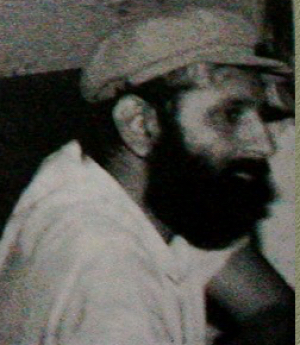 Rashid Khatri in Pakistan 1995
Rashid Khatri in Pakistan 1995
"Sad and shocking. Losing friends who believed in people."
Lajana Manandhar, Lumanti, Nepal
"I am sad to know that Khatri is no more with us! His warm memory will always be with me."
Nad - Chawanad Luangsang, CAN Thailand
RIP Rashid Khatri
Today I received the sad news that our friend ,Khatri had passed away.
He is a Pakistani engineer who was dedicated and committed to work for poor people and always tried to develop low-cost technology on infrastructure.
We used to work together since 2001 when I started with a community upgrading project in Klong Toey, Bangkok.
He taught me so many things with his lively personality and humour. He is a barefoot engineer who helped me to develop the bio-treatment system that we still use nowadays in many projects.
Time to rest, hum your favourite songs...and enjoy peace.
We will pray for you my friend.
 Rashid Khatri in Pakistan 1995
Rashid Khatri in Pakistan 1995Update on Evictions in Jakarta September 2015
From Ariel Shepherd in Jakarta
“We are not orang liar / wild people”

In Jakarta violent and extensive evictions having been taking place recently along the river-ways, with more than 30 already occurring this year. Last month in Kampong Pulo, South Jakarta over 1000 families were displaced in three days. however this particular eviction has caused the most response by the residents, and coverage by the media.

People had been promised compensation earlier in the year, but when the evictions arrived no one received anything, being told they were 'liar' which means wild. Many of the residents in kampong pulo are indigenous to Jakarta, known as Betawi people, the others have been living there for over three generations. When told they have no right to compensation because they are 'wild people', they protested because in fact they own various forms of land titlement, including 'Verbonding' a dutch land certificate passed down from 1930, but haven't succeeded in a registering them because although the process is supposed to be free, in reality it's very expensive and time consuming. Residents of Kampong Pulo, supported by Ciliwung Merdeka are currently in the process of creating a court-case on their land title.

Some families in Kampong Pulo get access to rental units in a high rise tower near by on a first come first served basis. The relocation site for an eviction in Pinangsia, North Jakarta was across the city, residents have set up tents on the old destroyed site not wanting to accept the new units offered to them.

New units are free for some months, and then heavily subsidised there on after, but don't include additional costs. The buildings are built at very low cost, with very little budget for annual maintenance so quickly fall into a dangerous condition.
The governor, and the popular opinion in the media is that the people are “demanding too much” and they should be “happy with what is being offered them” What's slowly becoming transparent however is the housing solutions on the table are far from solutions, merely shifting the problems around. And the project to concretise the river will likely have little effect on flooding long term unless serious measure are made to reduce ground water extraction and storm water run-off.
The governor, and the popular opinion in the media is that the people are “demanding too much” and they should be “happy with what is being offered them” What's slowly becoming transparent however is the housing solutions on the table are far from solutions, merely shifting the problems around. And the project to concretise the river will likely have little effect on flooding long term unless serious measure are made to reduce ground water extraction and storm water run-off.

Below are two schematics by the architect YuSing, who worked with Ciliwung Merdeka, and the residents on this alternative housing proposal. Humanitarian Vertical kampung, one image during flood season, the other during dry season.


Some links to Jakata Post Oress reorts here:
From The Jakarta Post
If only Jakarta Governor Basuki “Ahok” Tjahaja Purnama had been eager to listen to a proposal on the kampong susun (elevated village) development in Kampung Pulo, violence would not have marred the relocation of residents of the East Jakarta area on Thursday and he could have emerged as the next Joko “Jokowi” Widodo, his popular former boss. -
Kampung Pulo preparing for legal suit
More updates soon ....
AND in Bangkok
From Jakarta to Bangkok, under the name of urban development and environment clean up, the poor communities living along the canals and riversides have being forced to move away. Evictions are not new and become common practices in many Asian cities during many decades.
What makes different now in Bangkok is that the network of poor communities become stronger and they are organizing themselves to make them visible and to negotiate with the government. It is not easy process and will take long ways to go.
The people's process aims to prepare and to fight no longer for individual interests ( property or financial losses), but for maintenance their own communities in the future.
I hope this Klong Clean-up in Bangkok will be a good lesson for our friends in the Urban Poor Coalition in Asia ( UPCA). .... Minh Chau ACHR Sec Bangkok
I hope this Klong Clean-up in Bangkok will be a good lesson for our friends in the Urban Poor Coalition in Asia ( UPCA). .... Minh Chau ACHR Sec Bangkok
The great khlong clean-up
A plan to widen Bangkok’s canals has been made a national priority, but tens of thousands of people living in low-income communities will be left looking for new homes.
 Read more in the BANGKOK POST article Sept 2015
Read more in the BANGKOK POST article Sept 2015Read More: Bann Mankong at KLONG BAN BUA Community Guidebook
- Bangkok's most comprehensive klong-side upgrading process can be downloaded from ACHR's Publications Library HERE.
( click the download in the Library ... it may take a few minutes )
ACHR Continuing Activities
 The program on Asia’s Decedent Poor has been expanded to include not only an emphasis on the poorest of the poor in Asia, but also to incorporate some of the character of our ACCA citywide upgrading activities. ……. A collaboration between SELAVIP and ACHR
The program on Asia’s Decedent Poor has been expanded to include not only an emphasis on the poorest of the poor in Asia, but also to incorporate some of the character of our ACCA citywide upgrading activities. ……. A collaboration between SELAVIP and ACHRGo here for further information.

The Urban Poor Coalition Asia -UPCA-
giving opportunity and a platform for Asia’s grassroots leaders and communities to advocate and implement their own program of urban poor development continues.
Regional Fund Actiivities
Community Development Funds study. Poverty Line study expanded.
Study visits for 6 countries to the Women’ Cooperative in Sri Lanka. Sharing regional experiences in Myanmar.
 The Community Architects Network - CAN -
The Community Architects Network - CAN -has already implemented some of its 2015 activities.
Heritage Workshop in Nepal Brief here
Collaboration with DPU students ad CAN-CAM Cambodia in May.
Later in the Philippines CAN”s annual Regional Workshops - 2 weeks of sharing and learning against the backdrop of real community development activities in 4 communities in Manila.
International Workshop 2015 On: “CITYWIDE UPGRADING TRANSFORMATION IN CAMBODIA” 1 - 15 May 2015

24 International students from DPU UK join Cambodian, Lao and Thai CAN members for this international workshop.
Photo: Final discussions before heading out to communities for 5 days of participatory planning and discussions.
You can DOWNLOAD a 2 page PDF explaining the worksshop, collaborations and expected outcomes.
 Yesterday we visited to learn from the poor communities: how they build and improve their communities and how they build the city. Without them the city will not function and live; please keep learning and support the peoples’ movement to improve their own communities. This is how we can have a better city: ) NAD ….CAN
Yesterday we visited to learn from the poor communities: how they build and improve their communities and how they build the city. Without them the city will not function and live; please keep learning and support the peoples’ movement to improve their own communities. This is how we can have a better city: ) NAD ….CANPhnom Penh, Cambodia
CAN's 3rd Newsletter has recently been completed for DOWNLOAD

APRIL 2015
CAN NEWSLETTER APRIL 2015
Craftsmanship in architecture
We have come to the third issue of the CAN newsletter. Without intentionally creating a theme, unexpectedly a large number of stories arrived sharing on the role of craftsmanship in architecture at the scale of the household, and also the city. A week-long heritage conservation workshop hosted by friends in Kathmandu, and a heritage tour launched by friends in Yogyakarta, both place the artisans themselves as the main actors in the upgrading process producing a form of “living heritage”. Young professional supported by the Perween Rahman Fellowship in Vietnam experiment with using compressed soil bricks as a low-cost alternative to concrete, while our friends from Hunnarshala, India share on their recent progress with rammed earth construction, and a new housing project for the homeless in Bangkok gives the space for residents to be the artisans of their own unit. The Siamese Association of architects has also decided to dedicate a public seminar to artisan-architects working, designing, and building with bamboo, rammed earth, and wood.
Hope you enjoy reading this collection of inspiring stories, please share with others, and please share other stories with us.
Ariel and Francesco
DOWNLOAD FROM HERE on the CAN Site Size: 8370 MB
ACHR and the Nepal Earthquake - May 2015
Help Nepal's poorest earthquake-hit communities rebuild
PLEASE DONATE! ACHR is calling on you to help us raise funds to support some of Nepal's poorest communities, so that they can play a central role in managing their own relief and planning the rebuilding of their lives and houses after the earthquake of April 25 devastated their towns and settlements. The earthquake and its aftershocks have left at least 6,000 people dead and millions without homes, and many of the poorest communities in the Kathmandu Valley and other quake-hit areas have not yet been reached by aid groups or government assistance, which are already overwhelmed by the scale of the calamity.
WHAT WILL YOUR SUPPORT DO? This initiative is being managed by the Kathmandu-based NGO Lumanti, in collaboration with its partner community organizations, and supported by technical assistance from its longtime friends at ACHR and the regional Community Architects Network (CAN). Your funds will be used first to provide urgent relief assistance to these crumbled communities (food, water, medical help, temporary housing and services), and then to help them survey the damage and needs and begin working together to develop longer-term plans for rebuilding their houses and communities, so that they can be stronger, more secure and more sustaining than before the earthquake.
WHO ARE WE?
1. ACHR: (www.achr.net) The Asian Coalition for Housing Rights (ACHR) is a network of Asian professionals, NGOs and community organizations who have been working together for 25 years to bring Asia's poor communities into the active center of a process of finding solutions to the enormous problems of urban poverty, land, housing and basic services. Common to all these groups is a belief that as the ones who personally face these problems every day of their lives, the poor are the ones most urgently wanting change and the greatest force to actually solve the problems that are too big for governments and development agencies to solve alone. This belief has been put into practice and born out in hundreds of community-planned and community-built housing and upgrading projects in 400 Asian cities, which now provide secure land and housing to some 150,000 urban poor families.
In the aftermath of the 2004 Asian tsunami, and of many subsequent storms, landslides, earthquakes and floods in the Asia region, ACHR groups have shown that in similar ways, the poor communities most severely affected by these disasters can be the greatest development force in both the short term relief and the longer-term rebuilding stages. There is an assumption that those affected by disasters are helpless victims, and that professionals and outsiders know best what they need. But the experience of many calamities has shown that the active involvement of communities in post-disaster relief and rehabilitation is a good way to help them overcome their losses and an important strategy to ensure that aid resources not only reach those who really need it, more appropriately and more equitably, but turns the process of disaster rehabilitation into a self-development process for the most marginalized communities.
2. LUMANTI: (www.lumanti.org.np) (www.facebook.com/lumanti.shelter) For the last 22 years, the Kathmandu-based NGO Lumanti has been working in close partnership with three national people's organizations (the National Women's Federation, the National Federation of Squatter Communities and the National Network of Women's Savings Cooperatives) to tackle big problems of poverty, housing, land, eviction, access to basic services and climate change in ways that are driven by poor communities themselves, but implemented in collaboration with their local government agencies and other stakeholders. Despite the persistance of a volatile and tenuous political situation in Nepal, Lumanti and its community partners (and with support from ACHR) have made striking achievements in secure housing projects, settlement upgrading initiatives and poverty reduction through community women-managed savings and credit groups in some 35 towns and cities across Nepal. As a result of this sustained work, a nation-wide infrastructure of organized, capable and experienced community organizations and their NGO and government supporters is now in place and is ready to take active part in the immediate and longer-term earthquake relief and rehabilitation work in the Kathmandu Valley and other affected areas.
3. CAN (www.communityarchitectsnetwork.info) The Community Architects Network (CAN) is an Asia-wide network of community architects, planners, engineers, community-based artisans, students and academic institutions who are working with poor communities in their cities and countries in new and creative ways, providing technical and design support to housing projects and slum upgrading initiatives in which the poor are the key designers and builders, and the professionals play a supporting role. In these ways, the solutions come from poor communities themselves, and the process of planning and implementing these physical improvements becomes a vital opportunity to build the capacities of Asia's urban poor community organizations. The CAN network, which was launched in 2010, now brings together 27 groups, in 17 Asian countries, who are working with grassroots communities on citywide mapping and surveying, participatory housing design and settlement planning and other processes to bring about physical improvements in the lives of the urban poor. The Pro-Poor Technical Assistance Group (PTAG) is Nepal's own network of community architects and has worked closely with Lumanti and its grassroots partners on most of its housing and slum upgrading projects.
Thank you!
Read frequent Updates on this site directly from Lumanti in Nepal HERE
CAN NEWSLETTER APRIL 2015
Craftsmanship in architecture
We have come to the third issue of the CAN newsletter. Without intentionally creating a theme, unexpectedly a large number of stories arrived sharing on the role of craftsmanship in architecture at the scale of the household, and also the city. A week-long heritage conservation workshop hosted by friends in Kathmandu, and a heritage tour launched by friends in Yogyakarta, both place the artisans themselves as the main actors in the upgrading process producing a form of “living heritage”. Young professional supported by the Perween Rahman Fellowship in Vietnam experiment with using compressed soil bricks as a low-cost alternative to concrete, while our friends from Hunnarshala, India share on their recent progress with rammed earth construction, and a new housing project for the homeless in Bangkok gives the space for residents to be the artisans of their own unit. The Siamese Association of architects has also decided to dedicate a public seminar to artisan-architects working, designing, and building with bamboo, rammed earth, and wood.
Hope you enjoy reading this collection of inspiring stories, please share with others, and please share other stories with us.
Ariel and Francesco
DOWNLOAD FROM HERE on the CAN Site Size: 8370 MB
ACHR and the Nepal Earthquake - May 2015
Help Nepal's poorest earthquake-hit communities rebuild
PLEASE DONATE! ACHR is calling on you to help us raise funds to support some of Nepal's poorest communities, so that they can play a central role in managing their own relief and planning the rebuilding of their lives and houses after the earthquake of April 25 devastated their towns and settlements. The earthquake and its aftershocks have left at least 6,000 people dead and millions without homes, and many of the poorest communities in the Kathmandu Valley and other quake-hit areas have not yet been reached by aid groups or government assistance, which are already overwhelmed by the scale of the calamity.
WHAT WILL YOUR SUPPORT DO? This initiative is being managed by the Kathmandu-based NGO Lumanti, in collaboration with its partner community organizations, and supported by technical assistance from its longtime friends at ACHR and the regional Community Architects Network (CAN). Your funds will be used first to provide urgent relief assistance to these crumbled communities (food, water, medical help, temporary housing and services), and then to help them survey the damage and needs and begin working together to develop longer-term plans for rebuilding their houses and communities, so that they can be stronger, more secure and more sustaining than before the earthquake.
WHO ARE WE?
1. ACHR: (www.achr.net) The Asian Coalition for Housing Rights (ACHR) is a network of Asian professionals, NGOs and community organizations who have been working together for 25 years to bring Asia's poor communities into the active center of a process of finding solutions to the enormous problems of urban poverty, land, housing and basic services. Common to all these groups is a belief that as the ones who personally face these problems every day of their lives, the poor are the ones most urgently wanting change and the greatest force to actually solve the problems that are too big for governments and development agencies to solve alone. This belief has been put into practice and born out in hundreds of community-planned and community-built housing and upgrading projects in 400 Asian cities, which now provide secure land and housing to some 150,000 urban poor families.
In the aftermath of the 2004 Asian tsunami, and of many subsequent storms, landslides, earthquakes and floods in the Asia region, ACHR groups have shown that in similar ways, the poor communities most severely affected by these disasters can be the greatest development force in both the short term relief and the longer-term rebuilding stages. There is an assumption that those affected by disasters are helpless victims, and that professionals and outsiders know best what they need. But the experience of many calamities has shown that the active involvement of communities in post-disaster relief and rehabilitation is a good way to help them overcome their losses and an important strategy to ensure that aid resources not only reach those who really need it, more appropriately and more equitably, but turns the process of disaster rehabilitation into a self-development process for the most marginalized communities.
2. LUMANTI: (www.lumanti.org.np) (www.facebook.com/lumanti.shelter) For the last 22 years, the Kathmandu-based NGO Lumanti has been working in close partnership with three national people's organizations (the National Women's Federation, the National Federation of Squatter Communities and the National Network of Women's Savings Cooperatives) to tackle big problems of poverty, housing, land, eviction, access to basic services and climate change in ways that are driven by poor communities themselves, but implemented in collaboration with their local government agencies and other stakeholders. Despite the persistance of a volatile and tenuous political situation in Nepal, Lumanti and its community partners (and with support from ACHR) have made striking achievements in secure housing projects, settlement upgrading initiatives and poverty reduction through community women-managed savings and credit groups in some 35 towns and cities across Nepal. As a result of this sustained work, a nation-wide infrastructure of organized, capable and experienced community organizations and their NGO and government supporters is now in place and is ready to take active part in the immediate and longer-term earthquake relief and rehabilitation work in the Kathmandu Valley and other affected areas.
3. CAN (www.communityarchitectsnetwork.info) The Community Architects Network (CAN) is an Asia-wide network of community architects, planners, engineers, community-based artisans, students and academic institutions who are working with poor communities in their cities and countries in new and creative ways, providing technical and design support to housing projects and slum upgrading initiatives in which the poor are the key designers and builders, and the professionals play a supporting role. In these ways, the solutions come from poor communities themselves, and the process of planning and implementing these physical improvements becomes a vital opportunity to build the capacities of Asia's urban poor community organizations. The CAN network, which was launched in 2010, now brings together 27 groups, in 17 Asian countries, who are working with grassroots communities on citywide mapping and surveying, participatory housing design and settlement planning and other processes to bring about physical improvements in the lives of the urban poor. The Pro-Poor Technical Assistance Group (PTAG) is Nepal's own network of community architects and has worked closely with Lumanti and its grassroots partners on most of its housing and slum upgrading projects.
HOW TO DONATE: Please send your donations directly to ACHR's account in Bangkok, as follows:
- Account Name: Asian Coalition for Housing Rights
- Bank Name: Bangkok Bank
- Account Number: 192-419085-1
- Bank Branch Address: Suan Sayam 99/1 Moo 3 Serithai Rd, Kannayao, Bangkok 10230, Thailand
- Swift Code: BKKBTHBK
Note from NGOSource (USA) for ACHR
And please let us know by e-mail the details of your wire transfer: achr@achr.net
Or Donate direct to Lumanti NGO in Kathmandu
Account name: Lumanti (Samjhana)
A/c number: 01-0382876-22
Swift Code: SCBLNPKA
- Account Name: Asian Coalition for Housing Rights
- Bank Name: Bangkok Bank
- Account Number: 192-419085-1
- Bank Branch Address: Suan Sayam 99/1 Moo 3 Serithai Rd, Kannayao, Bangkok 10230, Thailand
- Swift Code: BKKBTHBK
Note from NGOSource (USA) for ACHR
" We were able to certify that your organization is equivalent to a U.S. public charity. An ED certificate for your organization is now available in our repository. We encourage you to inform your U.S.-based funders that you have completed an ED with NGOsource. Doing so may help you get funding faster and more easily. NGOsource certifies EDs for U.S. grantmakers, so the grantmaker can meet their tax compliance requirements and give to your NGO with fewer restrictions. "
And please let us know by e-mail the details of your wire transfer: achr@achr.net
Or Donate direct to Lumanti NGO in Kathmandu
Account name: Lumanti (Samjhana)
A/c number: 01-0382876-22
Swift Code: SCBLNPKA
Thank you!
Read frequent Updates on this site directly from Lumanti in Nepal HERE




